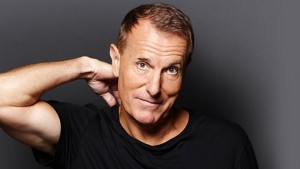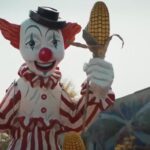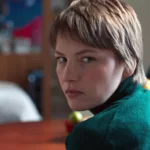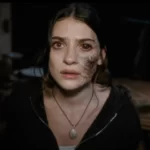Australian Crawl remain one of the great bands of their generation. Over four studio albums, an EP and a couple of live albums their songs became deeply etched in the Australian psyche. James Reyne was the band’s front man and, with a fine eye for portraiture, wrote the lion’s share of the material. He was more than ably supported in the writing department by the late Guy McDonough. While the music is now part of our cultural fabric, the band could never reform due to the passing of McDonough and Brad Robinson. Reyne has played the hits in his solo set for years, but now, after almost three decades, Reyne has saddled up to play a series of shows, with a full band in tow, comprised entirely of Australian Crawl material. Sean Sennett chatted to Reyne on the eve of his Brisbane shows at Eatons Hill (Friday Aug 08) and the Tivoli (Saturday Aug 09).
TOM: What was your initial motivation for deciding to do these shows?
James: Well, first of all I think it was mainly that Universal released the back catalogue of all the Crawl stuff this year, because they realised it wasn’t available digitally. People have asked me (in) one form or another about it for years … but you can never ever put that band back together. I figured I’ve avoided it for so long. I thought now is probably a good time. You couldn’t call it Australian Crawl, so you call it “James Reyne just does the songs of”. That was why. It’s a finite thing. We go out, we’ll do it, and it’s been received really well, sold really well. So I’ll get out there and do it and thank you very much.
TOM: Were you surprised that people have embraced it so much?
James: I don’t know. I never know how to think about those things. I try not to think about those things. I thought there might be some interest but I didn’t think it would be as intense as it has been. People tell you those things but I take it with a grain of salt.
The shows we’ve done so far, they’re just — people lose their stuff, they really lose it. It’s all ages. I thought it’d be all old — not old, I shouldn’t say that, but people at least my age and younger, and there’ve been a lot of young people there. I guess their parents played it to them.
TOM: You wrote a lot of songs for the band. 90% of the Australian Crawl songs that you sang, they were James Reyne’s songs first. So did you kind of feel you’re reconnecting with some of that material that you’ve dusted off for this tour?
James: Maybe, a couple of the songs — it was funny. I didn’t listen to them. I went through the list and quite a few of them I went “Oh my God, that’s awful. We can’t play that.” But a couple of them I thought ‘that stands-up’. A good thing about it is maybe some of these songs reconnect in the sense that they feel a bit like we’re doing new songs, because I haven’t played them in so long. Some of the ones I’d totally forgotten about or I hadn’t wanted to think about them.
TOM: I’ve seen you quite a few times with your band, and last time you were here you were absolutely rocking. You sort of played the best of Australian Crawl and the best of your solo stuff anyway. It’s not like they’ve been under a rock for a long time.
James: That’s true. The more well known ones we do play. We swap them around a bit, but the more well-known ones — you’re going to get lynched if you don’t play “Reckless” and “Boys Light Up” — people are kind of expecting it, and I understand that. We put them in amongst my solo stuff and amongst some new ones. Yeah, there are a few songs we always do anyway, and it’s my band doing it. It’s a great band … it sounds better than Australian Crawl ever sounded so I’ll put it that way (laughs).
TOM: I’m assuming you never went back and listened to Australian Crawl records after you made them. What was it like going back and listening to those records now?
James: I didn’t listen to them. I just got the list out and the ones I couldn’t remember, certain members of the band would listen to them for me. I couldn’t listen to it. Brett or Phil or Andy would probably go and listen to it and they’d come and say, “No, it went like this. There’s that bit on it.”
TOM: What kind of songs have been revelations to you, you’ve gone actually that’s a pretty good song?
James: I quite enjoy playing “Always The Way.” A song called “Man Crazy,” that was the B-side of the very first single (‘Beautiful People’). I thought was silly, it’s sort of okay when we played it. The other guys kept saying that’s that sort of country/rocky song before a lot of people were playing that country/rocky sort people play now. I didn’t even think about it.
TOM: Mick Thomas covered that, didn’t he?
James: Yeah, Mick did that.
TOM: I guess that’s a bit of a tip of the hat from an acclaimed songwriter doing something like that.
James: Yeah, it’s very kind of him, the only other time I’ve ever done it — the Weddings do their — I think it’s once a year, maybe, or once every couple of years they do their Christmas show. He invited me along one day. So I sang a verse. That’s how I knew they did it.
TOM: If you had your time all over again, would you have bothered being in a band, or would you have just done a solo thing from day one?
James: I probably would’ve done a solo thing if I knew what I know now (laughs). It was great fun. We were really young and it was great fun. There’s a certain camaraderie and a great security and strength in numbers. You get your little gang and it’s you against the world. There’s a lot more confidence that way, but I must admit when the band finished I was relieved. Anyone who’s been in a band will know that it gets tough sometimes.
TOM: A record like Sirocco (Things Don’t Seem, Lakeside, Errol, Unpublished Critics, Oh No Not You Again) always seems to get singled out now as a bit of a classic record. Did you feel you and Guy were hitting a song-writing peak at that time within the band?
James: Maybe. I don’t think we even though in those terms. We were just enjoying ourselves. We were great mates. We shared a house together, and on the road we shared a room together. We wrote a few songs together and then we’d write a few songs separately. Someone (you) would have a bit, and we’d play that bit to the other, and the other might finish it off, or help the other finish. Things like that, just a way things often work. We naturally worked quite relatively well together, from memory.
TOM: Obviously the band had a lot of commercial success. When you finished certain records, did you kind of feel in your bones that this was going to connect with a wider audience?
James: The first one (The Boys Light Up) we didn’t think so, didn’t know, had no idea. We were just happy someone let us make the record. I think after the first one did so well, with Sirocco — I suppose you subconsciously expect and hope that it’s going to do as well. You don’t want to have a failure.
TOM: How was the experience with Mike Chapman recording the third record (Sons Of Beaches)?
James: That was, as I have been saying sometimes in the shows so far, is that we didn’t make the best record of our career. A couple of good songs on it. “Daughters of the Northern Coast” was on it, which I think is a good song. But we didn’t make the best record of our little life, but we had a great time.
TOM: You said in the past you thought that the Semantics EP, the album version of that (released in the USA) was the best thing you’ve ever recorded. Do you still feel that way now, looking back?
James: I think so. Although we recorded some of the songs that were hits here for the American market, it was the first time that the band really — to my memory we really worked together, pulled together. Everyone naturally fell into their natural roles. This is my memory of it, which could be wrong. My recollection is we were starting to play well. We finally had a good drummer (John Watson)… things like that. There was self-confidence, a healthy self-confidence that hasn’t totally been there before that, in terms of ourselves as players.
It was knowing the studio –it was the third or fourth time we’d been in that studio. We’d gotten to feel really at home in the studio, things like that. We knew what we wanted, so we weren’t intimidated by producers and things like that. We got along well with Mark Opitz. Mark was a great producer. Mark was very good psychologically at that stage for the band. All the things sort of gelled.
TOM: When you made the final album (Between A Rock And A Hard Place) was there a conscious decision to move away from certain style of song writing that you’d employed up to that point?
James: Funnily enough that was because I’d done a lot of demos. Most of the songs on that record I’d written either by myself or with Simon Hussey. The demos of that record were much better than the record we made. I think we definitely had the wrong producer (Adam Kidron), and the band was splitting up while we were making that record, so that didn’t help. I’m not blaming anyone. It was probably more my fault than anybody’s. But I think we’d all moved on. Yeah, it all sort of moved on anyway, in our minds.
James Reyne plays Australian Crawl at Eatons Hill (Aug 08), the Tivoli (Aug 09). For more dates around Australia check out Jamesreyne.com.au




